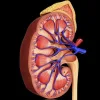The Effects of Sodium on Heart Health
Sodium is an essential mineral that plays a crucial role in maintaining proper fluid balance, transmitting nerve impulses, and supporting muscle function in the human body. However, excessive sodium consumption has been linked to various health issues, particularly concerning heart health. In this article, we will explore the effects of sodium on heart health, the recommended sodium intake for Indians, and practical tips for managing sodium levels in the diet.
The Impact of Excessive Sodium on Heart Health
1. Hypertension
- High sodium intake is associated with elevated blood pressure, a major risk factor for heart disease and stroke. When sodium levels are high, the body retains more water to dilute the sodium. This increased water retention puts extra strain on the heart and blood vessels, leading to elevated blood pressure.
2. Increased Risk of Cardiovascular Diseases
- Excessive sodium consumption has been linked to an increased risk of developing cardiovascular diseases such as heart attack, stroke, and heart failure. The strain on the heart and blood vessels caused by high sodium levels can contribute to the development and progression of these conditions.
3. Fluid Retention
- High sodium intake can lead to fluid retention, causing swelling in the extremities and potentially leading to conditions such as edema. This fluid retention can also exacerbate the strain on the heart and contribute to cardiovascular issues.
4. Impact on Arteries
- Excessive sodium can cause the arteries to stiffen and narrow, increasing the workload on the heart and raising the risk of heart-related complications.
5. Role in Congestive Heart Failure
- For individuals with congestive heart failure, high sodium intake can worsen symptoms and lead to complications. Managing sodium levels is crucial for maintaining the health and function of the heart in such cases.
6. Recommended Sodium Intake for Indians
- In the Indian context, the recommended daily intake of sodium is generally lower than in many Western countries due to dietary patterns and cultural practices. The Indian Council of Medical Research (ICMR) recommends a daily sodium intake of no more than 2,300 milligrams per day for Indians, which is approximately one teaspoon of salt.
Managing Sodium Intake for Heart Health
1. Read Food Labels
- Being mindful of sodium content in packaged and processed foods is essential. Many pre-packaged foods, condiments, and snacks contain high levels of sodium, so reading food labels and choosing lower-sodium options is important.
2. Limit Salt Usage
- Reducing the use of table salt while cooking and at the dining table can significantly lower overall sodium intake. Exploring alternative ways to flavor food, such as using herbs and spices, can help reduce reliance on salt for taste.
3. Choose Fresh Foods
- Prioritizing fresh fruits, vegetables, and lean proteins over processed and packaged foods can naturally lower sodium intake while providing essential nutrients for heart health.
4. Be Cautious with Restaurant Meals
- Restaurant and fast food meals often contain high levels of sodium. Opting for healthier menu choices and asking for sauces and dressings on the side can help control sodium intake when dining out.
5. Stay Hydrated
- Drinking an adequate amount of water can help flush out excess sodium from the body, supporting healthy fluid balance and reducing strain on the heart.
Fitpaa – Your Partner in Heart Health
- While managing sodium intake is crucial for heart health, achieving overall wellness requires a holistic approach. Fitpaa, a comprehensive health and fitness platform, offers personalized solutions to support individuals in their journey towards optimal health. With its AI-driven Metabolism Monitoring and Management Technology, Fitpaa provides tailored plans to strengthen organ systems, including the cardiovascular system, for guaranteed results.
- Fitpaa’s approach encompasses medical nutrition therapy, medical exercise therapy, and cognitive behavior therapy to optimize metabolism and support heart health. The Fitpaa app empowers users with real-time guidance, habit-building techniques, and personalized fitness and nutrition plans to achieve their health and fitness goals.
- At Fitpaa, our mission is to help individuals achieve their health and fitness aspirations with a 100% guarantee. With a dedicated team of fitness planners, nutritionists, and doctors, Fitpaa offers a lifetime-valid, goal-oriented service to transform lives and promote overall well-being.
Conclusion
- Understanding the effects of sodium on heart health is crucial for making informed dietary choices and prioritizing cardiovascular wellness. By managing sodium intake, adopting heart-healthy habits, and leveraging comprehensive platforms like Fitpaa, individuals can take proactive steps towards achieving optimal heart health and overall well-being. Embracing a balanced approach to nutrition, exercise, and lifestyle can pave the way for a healthier, more fulfilling life.
If you are committed to prioritizing your heart health and achieving your fitness goals, download the Fitpaa app today. With guaranteed results and personalized support, Fitpaa is dedicated to helping you embark on a transformative journey towards optimal health and well-being.









